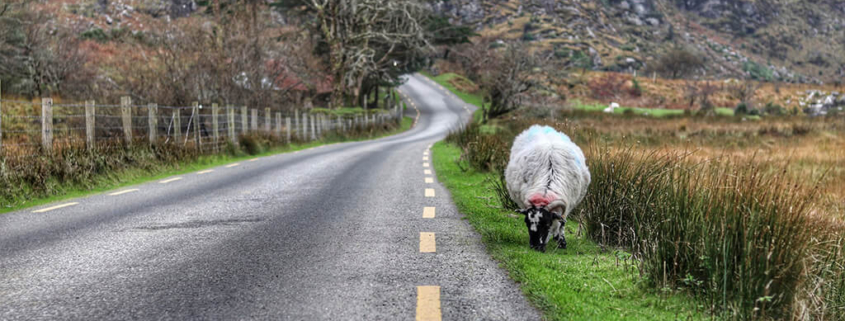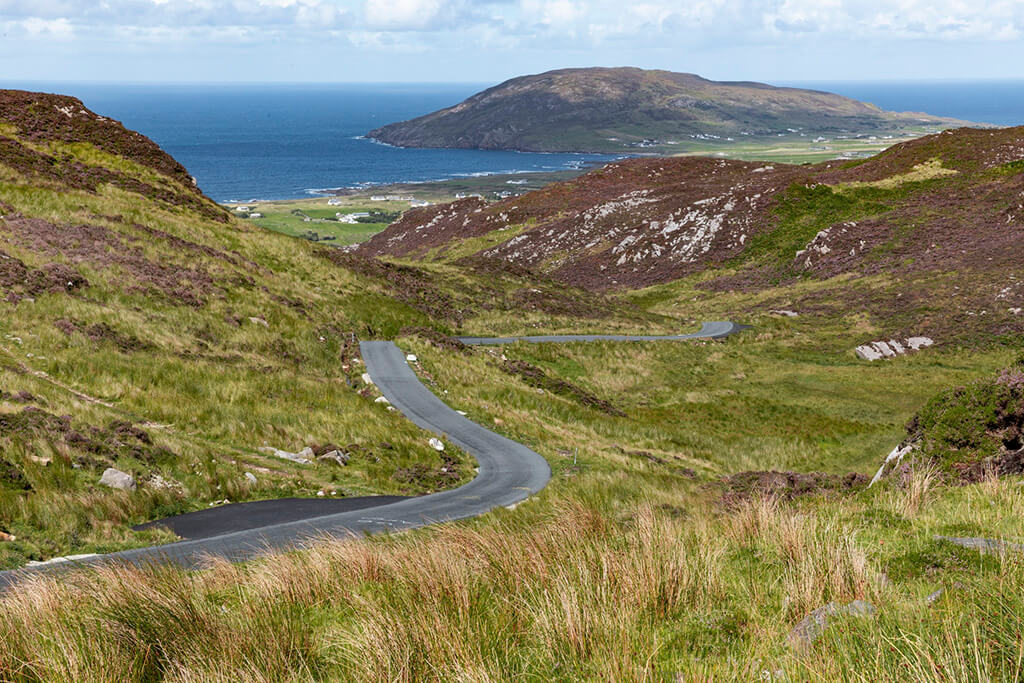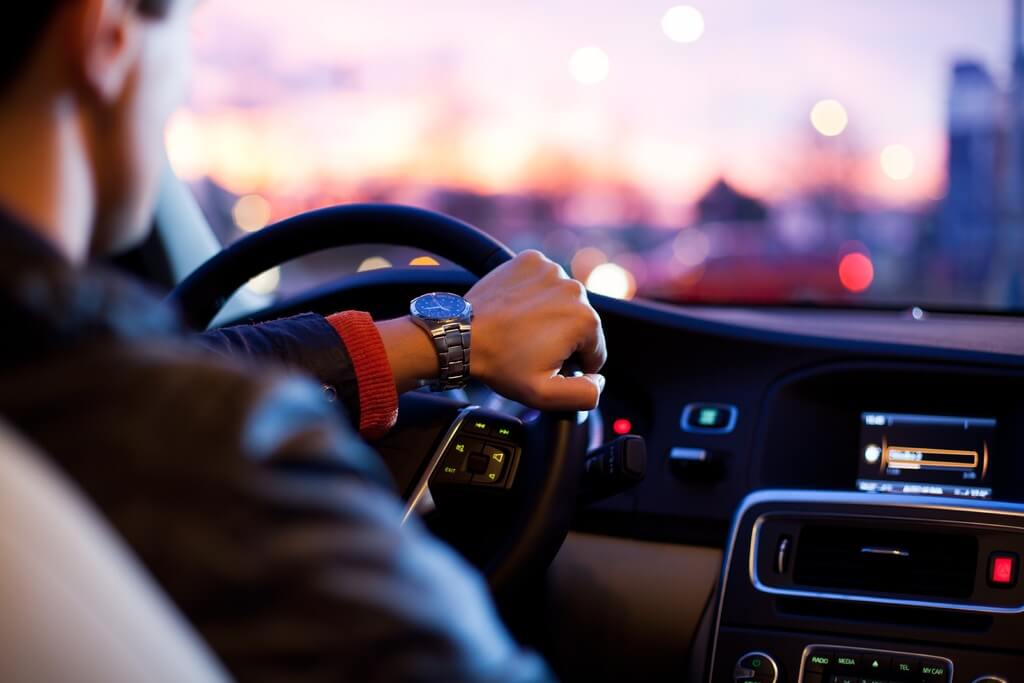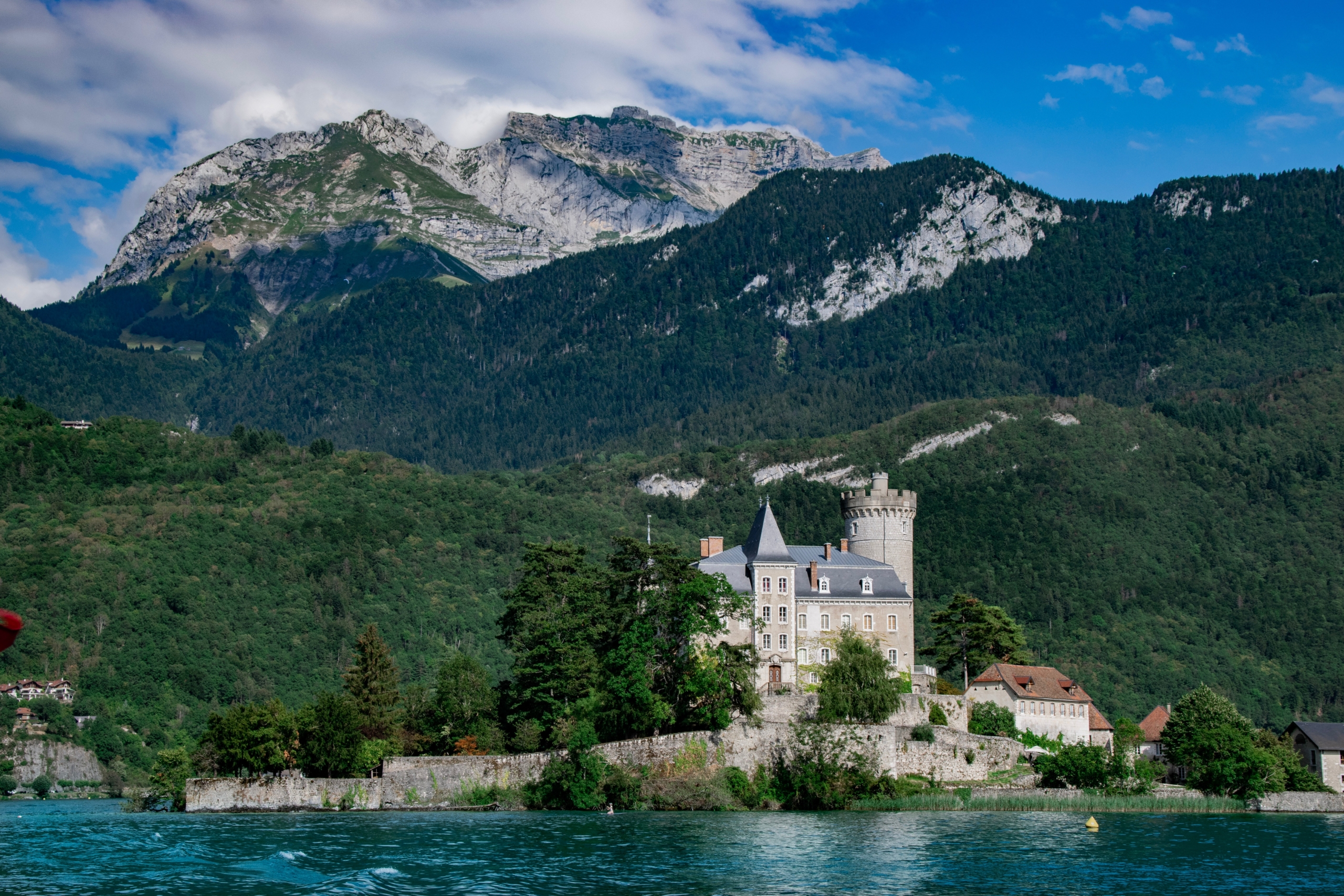Ireland is not only Dublin. Many tourists come to the green island for natural attractions rather than historical ones. And to visit them, you need a car. You cannot see much without it. Buses and trains will take you to the most popular ones, but not all the beautiful places on the island. We will tell you about renting a car in Ireland, remind you of the rules and try to dispel the fear of left-hand driving.
How to rent a car in Ireland
The easiest way is to look at all the available car options on this site and choose the right car for you. This is an aggregator of various companies, so the prices are different. Also, the cost of renting a car depends on the place where you want to pick it up. At Dublin Airport, the choice is wider and rent is cheaper, in the city center it is a bit more expensive.
Our advice: an automatic transmission will definitely make your life easier on the roads of Ireland, where everything is the other way around.
Rental rules
- Age limit is from 25 to 75 years. But if you are under 25 years old, this does not mean that there are no chances of renting at all. Set the filter to «less than 25 years old» and the site will offer you available options. Probably, the price will be slightly higher, but not too much.
- You will need an international driver’s license issued at least one year ago.
- You definitely need a passport.
- Take your credit (not debit) card. Keep in mind that the deposit will be around €1000. This amount will be frozen on a credit card. Of course it will be reimbursed after the return of the car. In some companies, this deposit is called insurance, which will also be returned upon the return of the car.
How much is renting a car in Ireland
A compact class car with a manual transmission will cost about €400 per week, €300 for 4 days, €200 for 1 day (depending on the season and the place of rent). Automatic transmission costs little more.
You should book a car as early as possible, at least two to three months in advance. For the next month, an automatic car costs twice as much, and in the high season the number of options will be very small. Do not hesitate and make a booking on this site. Reservations can be cancelled 24 hours in advance.
If you would like to use the car immediately upon arrival, set Dublin Airport as your pick up location.
Please note, when renting a car and paying a deposit and insurance, some fees are not included in the cost of the rental itself and are not necessarily indicated in the contract, for example Environmental and Recycling Charge, Vehicle Licensing Fee (about €5).
Very important! If you want to drive not only in Ireland, but also in Northern Ireland (which is actually a different country), then you need to warn the company about this in advance and pay an additional €25–35, regardless of the number of days.
So, Ireland, cars, highways. Here are the tips.
Tips about driving in Ireland
- Attention, left-hand traffic! It might sound scary, but actually it’s not a big deal. It’s awkward in the first 5 minutes if you get into the wrong lane at the turn, and then you get used to it. In addition, traffic in Ireland is very calm. And even if you turn the wrong way, they will understand and let you pass. So don’t panic.
- Overtaking only on the right.
- Abidance of traffic regulations is strictly monitored, violators are punished.
- The driver’s blood alcohol content should be no more than 0.5 ppm. That’s quite a lot, like two pints of Guinness. If the driving experience is less than 2 years, then the permitted content is 0.2 ppm. In general, Ireland is the most liberal country in terms of alcohol and driving. But do not abuse it’s trust.
- Make sure all passengers are wearing a seat belt.
- You can often see cameras with radars in Ireland, please observe the speed limit: the maximum speed in the city is 50 km/h, outside the city it’s up to 80 km/h, on express roads it’s up to 100 km/h (on these express roads you will see sheep grazing freely right in the middle of the highway), and it’s up to 120 km/h on motorways.
» READ MORE – Traveling in Ireland by car: itinerary
Toll roads in Ireland
There are several toll roads in Ireland. You can pay for them in cash. The fare is about €2–3. The fee should be paid by 8 p.m. the next day. If you don’t have cash, you can pay online, by phone or in stores marked with the Payzone sign. Some car rental companies organize road tolls themselves, making life easier for the customers. But this needs to be clarified in advance.
Parking lot
Don’t forget that it can be difficult to find a parking space in the old city. Here is what we can say about parking in Ireland:
- In the center of Dublin parking is paid (the cost of an hour is €0.80–3.50, depending on the zone indicated by color).
- Outside the central part of the city there are parking lots where price is counted by parking hours.
- Fines for violation of the rules are collected right on the spot.
In other cities in Ireland the situation with parking is solved easier, however it is better to book hotels with private parking.
Book a hotel with parking in Dublin» READ MORE – 20 best castles in Ireland
Insurance
Since no one is insured against misadventures or a minor accident, there are a huge number of auto insurance offers in Ireland. To avoid unpleasant surprises, pay attention to the «insurance» section in the contract and remember that during the lease, the rules of the country in which you rent a car are applied.
In most cases, the rental price includes limitation of liability in case of car damage (CDW – Collision Damage Waiver) and protection against theft (TP – Theft Protection). In case of damage or theft of the vehicle, the customer’s liability is limited to the established deductible, the amount of which is agreed in advance and indicated on the voucher. Read the contract carefully! The security features of the rental car are described in the voucher you receive when confirming your booking.
It is better to take additional insurance that will cover everything. Although the traffic here is very calm, the roads are narrow and there are many sheep. A small scratch can cost you around €250.
To take or not to take?
Bon voyage!





 Clement Souchet / unsplash.com
Clement Souchet / unsplash.com 
 Evgeny Ignatik / Pixabay
Evgeny Ignatik / Pixabay  Marcel Dominic / Pixabay
Marcel Dominic / Pixabay 
 Jkielty82 / Wikimedia Commons / CC-BY-SA-4.0
Jkielty82 / Wikimedia Commons / CC-BY-SA-4.0  Michael / unsplash.com
Michael / unsplash.com Daniel Stockman / flickr.com / CC BY-SA 2.0
Daniel Stockman / flickr.com / CC BY-SA 2.0
Leave a Reply
Want to join the discussion?Feel free to contribute!